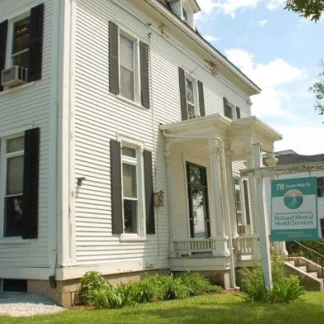Howard Center - Park Street Program
Howard Center is a dual diagnosis addiction rehab facility based in Rutland, VT ...
The Community Care Network offers children, adolescents, and adults mental health and drug and alcohol addiction treatment at its Rutland, Vermont location. This addiction treatment center utilizes an evidence-based approach in its recovery programs to enhance the well-being of families, communities, and individuals suffering from the effects of addiction.
The Community Care Network provides substance abuse services using evidence-based practices and a compassionate interdisciplinary team. This rehab center’s services include an intensive outpatient program (IOP), treatment court, a re-entry program, community services, and continuing care for ongoing recovery.
In addition, this addiction treatment center offers substance abuse assessments and evaluations to determine the best course of addiction treatment based on an individual’s needs. Counseling and therapy are also provided in individual, group, and family settings.
The Community Care Network accepts most major insurances, including United Healthcare, Cigna, Medicare, Medicaid, Premera Blue Cross, Humana, and TRICARE. Other accepted insurances include Molina Medicare, Aetna, WellCare, Healthy Blue, and many more. However, as is the case with most rehab centers, not all insurers are accepted. That’s why it’s best to speak with your insurer to determine coverage details and out-of-network benefits.
According to SAMHSA, the Community Care Network is on its way to becoming a respected Certified Community Behavioral Health Clinic. It is also affiliated with United Way and Vermont Care Partners.
Contact us for more information: (802) 773-4225

Connect with Community Care Network by calling their admissions team directly.
(802) 773-4225 Website Get DirectionsResearch clearly demonstrates that recovery is far more successful and sustainable when loved ones like family members participate in rehab and substance abuse treatment. Genetic factors may be at play when it comes to drug and alcohol addiction, as well as mental health issues. Family dynamics often play a critical role in addiction triggers, and if properly educated, family members can be a strong source of support when it comes to rehabilitation.
Group therapy is any therapeutic work that happens in a group (not one-on-one). There are a number of different group therapy modalities, including support groups, experiential therapy, psycho-education, and more. Group therapy involves treatment as well as processing interaction between group members.
In individual therapy, a patient meets one-on-one with a trained psychologist or counselor. Therapy is a pivotal part of effective substance abuse treatment, as it often covers root causes of addiction, including challenges faced by the patient in their social, family, and work/school life.
Group therapy is any therapeutic work that happens in a group (not one-on-one). There are a number of different group therapy modalities, including support groups, experiential therapy, psycho-education, and more. Group therapy involves treatment as well as processing interaction between group members.
In individual therapy, a patient meets one-on-one with a trained psychologist or counselor. Therapy is a pivotal part of effective substance abuse treatment, as it often covers root causes of addiction, including challenges faced by the patient in their social, family, and work/school life.
In individual therapy, a patient meets one-on-one with a trained psychologist or counselor. Therapy is a pivotal part of effective substance abuse treatment, as it often covers root causes of addiction, including challenges faced by the patient in their social, family, and work/school life.
Howard Center is a dual diagnosis addiction rehab facility based in Rutland, VT ...
Kids On the Move is a private rehab located in Rutland, Vermont. Kids On the Mov...
Rutland Mental Health Services is a private rehab located in Rutland, Vermont. R...
Department for Children and Family is a private rehab located in Rutland, Vermon...